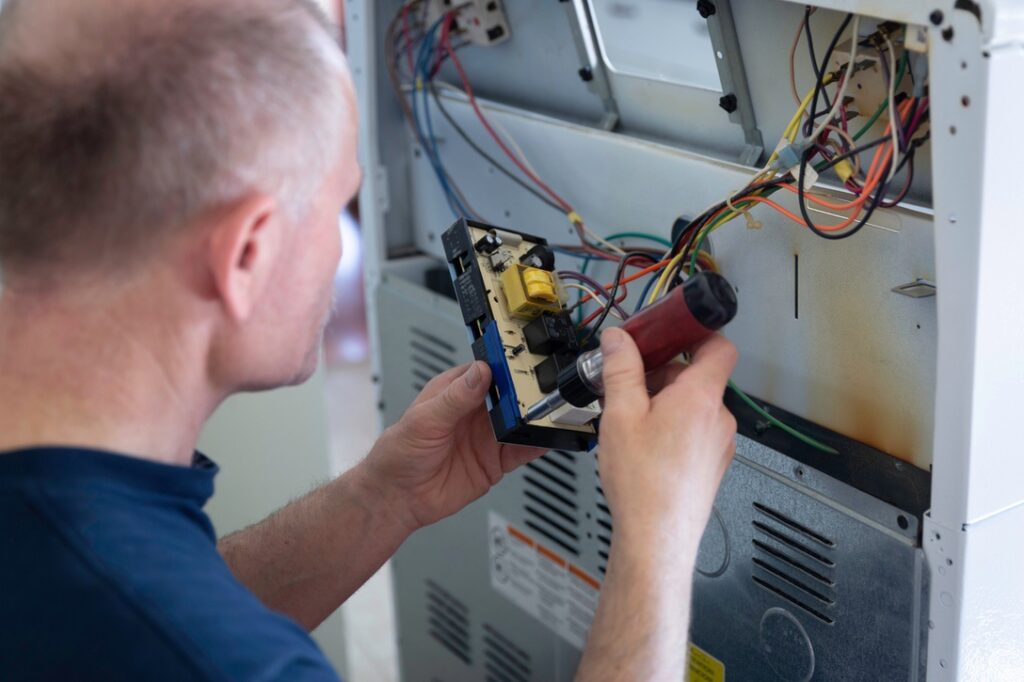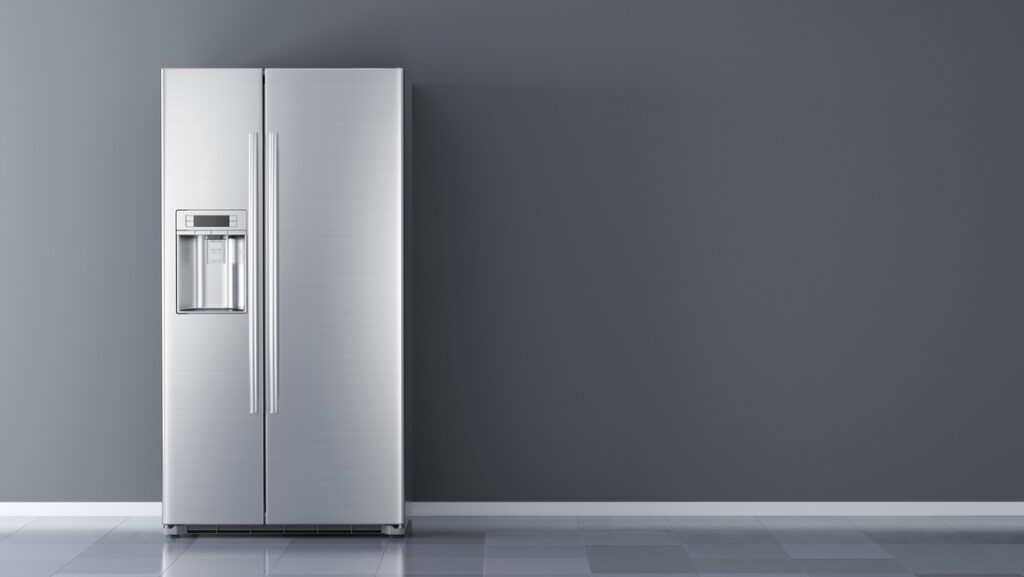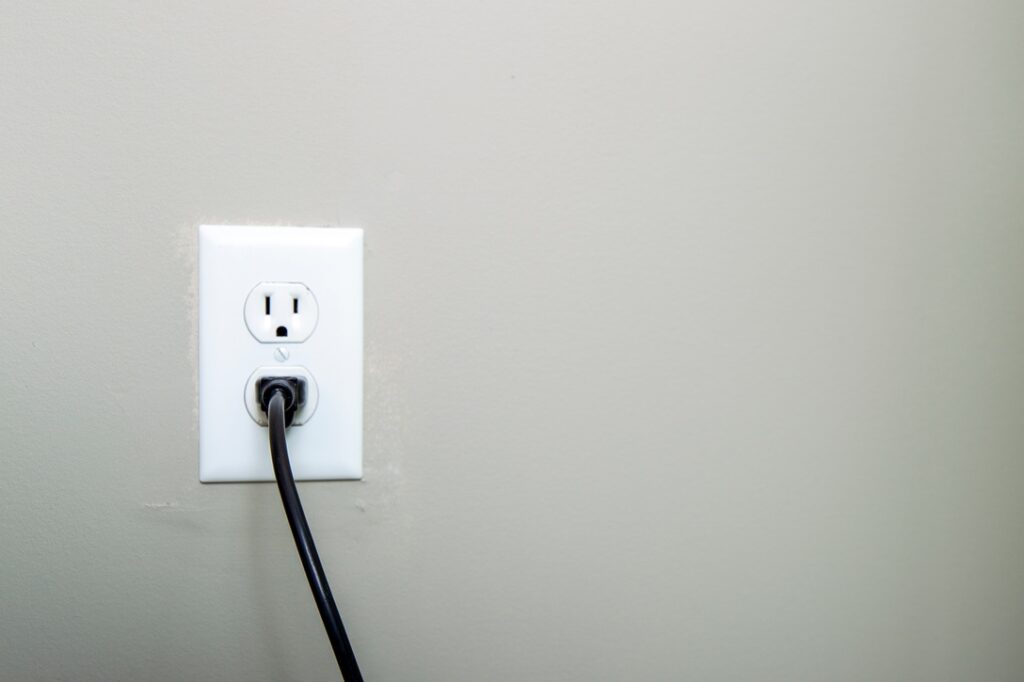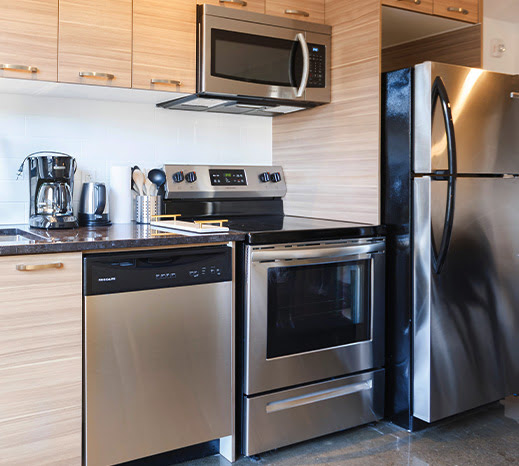Electric appliances provide modern conveniences to homeowners—most often in the kitchen, where they’re used to help prepare, cook, store, and even serve food. But the appliances you and your family rely on at home aren’t all designed to be plugged into wall outlets. Some of these devices are hardwired directly into your home’s electrical system!
Understanding the differences between hardwired and plug-in appliances can give you important information about how to turn them on and off, move them, and troubleshoot or repair them when necessary. Learn from the professional electricians at 4-Star Electric about what appliances are usually designed to be hardwired or plugged-in, and how you can make sure your home is ready to provide them with the power they need.

What is a Hardwired Appliance?
Hardwired appliances run on a dedicated circuit, which means their wires are spliced directly into a junction box to permanently connect them with the electrical wiring in your home.
Common examples of hardwired appliances can include:
- Ovens
- Refrigerators
- Dishwashers
- Garbage Disposals
Plug-in versions of most devices listed above can still be found through many retailers, but as a rule of thumb, you’ll find that larger appliances are more likely to be hardwired.

Pros
Hardwired Appliances Look Great
Hardwired appliances usually look cleaner and neater than plug-in versions, since they’re professionally installed. When we install hardwired appliances in our client’s homes, we never leave large amounts of wiring sticking out between the appliance and the wall.
Conversely, the cords that come with plug-in appliances are often visible—since they are not designed for specific spaces and typically come with longer cords in case there are no convenient wall outlets nearby.
Hardwired Appliances Can Be More Reliable
The contacts in wall sockets can wear out over time, especially if a wide variety of appliances are being plugged into and out of them. Eventually, this can lead to damage and even the possibility of electrical fires in situations where homeowners don’t replace the damaged outlets on time.
By contrast, hardwired appliances are rarely disconnected once they’ve been installed. A proper installation by our professionals will ensure a strong connection that’s likely to last as long as you own and operate the appliance.
Cons
Hardwired Appliances Cost More
Hardwired appliances must be installed by electricians with the skill and experience to perform the work safely. This means they cost more to get up and running than plug-in versions, which can simply be connected to wall sockets by the owner after being purchased and brought home.
Hardwired Appliances Can’t Be Moved (Easily)
Splicing an appliance’s wires into a junction box is much more permanent than plugging it in through a wall socket—which means that if you want to move a hardwired appliance, you’ll have to call an electrician to undo the process safely. Do not attempt to remove a hardwired appliance from your home’s wiring unassisted, as this can put you at risk of a dangerous electrical shock.

What is a Plug-In Appliance?
Plug-in appliances are pretty self-explanatory. They come with cords that connect them to the wall outlets in your home. Most North American appliances use cords with two- or three-pin plugs, rated for 15 A/125 V. The two-pronged plugs are ungrounded, but plugs with three pins have an earthing pin that enforces polarity and helps prevent power surges.
Common examples of plug-in appliances include:
- Blenders
- Waffle irons
- Coffee machines
- Toaster ovens
While some larger appliances are designed to be plugged in, smaller appliances like the ones above are almost always plugged in instead of hardwired.

Pros
Plug-In Appliances Are Portable
Because it’s easy to plug them in and out (and because they’re smaller), moving plug-in appliances from one place to another is usually no big deal. Just make sure to power down the appliance before taking the plug out gently, since yanking out a plug can contribute to socket damage—especially if the device is still on.
No Professional Installation Required
Plug-in devices are designed so that you can start using them as soon as you bring them home and connect them to power. This makes them highly convenient and allows you to avoid installation fees.
Cons
Plug-In Appliances Can Overload a Circuit
It’s common for homeowners to assume they can plug in as many appliances as they have available wall outlets, but that’s not always the case. Remember, different appliances use different amounts of current, and using too much at once can trip your home’s circuit breaker (or overheat the wiring in older homes, which can cause dangerous electrical fires).
Plug-In Appliances Have Bulky Cords
Since the cords that come with plug-in appliances are designed to reach wall outlets in a variety of spaces, they’re usually longer than you need them to be—resulting in a length of cord that can be unsightly or create a tripping hazard if you don’t have somewhere to tuck it away.
Hardwired vs Plug-in Appliances Comparison Chart
| Feature | Oven | Blender | Countertop Microwave | Built-In Microwave | Dishwasher | Coffee Maker |
| Type | Hardwired | Plug-In | Plug-In | Hardwired | Hardwired | Plug-In |
| Installation | Professional Required | User-friendly | User-friendly | Professional Required | Professional Required | User-friendly |
| Installation Cost | Higher | Lower | Lower | Higher | Higher | Lower |
| Mobility | Fixed | Portable | Portable | Fixed | Fixed | Portable |
| Maintenance | Lower | Moderate | Moderate | Lower | Lower | Moderate |
How to Make Your Home Appliance Friendly
Whenever you’re adding appliances to your home, it’s vital to make sure your existing electrical infrastructure can handle the demands of the new device. When you call us to install a hardwired appliance, we’ll be able to tell you if your home’s wiring needs to be upgraded prior to getting started—but it’s also a good idea to have us perform regular electrical inspections on your home so you can always be sure it has the capacity to power new plug-in appliances.
If your home’s wiring or electrical panel is too far out of date, it may need to be upgraded before you can use modern appliances safely. Contact 4-Star Electric to learn more about how we can keep your home safe and ready to meet all your electrical needs. You can also browse our most frequently asked questions about appliances below.
Frequently Asked Questions About Hardwired vs Plug-in Appliances
What’s the Benefit of Hardwiring an Appliance?
Hardwiring an appliance not only ensures electrical safety in your home, but it provides a more reliable and stable electrical connection. This will reduce the chances of any power interruptions or fluctuations that could affect the appliance’s performance. Don’t cut any corners (or wires) and hire one of our 4-Star professionals to get the job done properly and safely.
Which Appliances Need to be Hardwired?
Larger in-home appliances, that you don’t plan on moving, should be hardwired such as dishwashers, ovens, and stovetops. Hardwired devices are connected directly to the electrical framework of the home.
Can I Move a Hardwired Appliance?
If you plan to move a hardwired appliance, which is pretty rare, it’s not an easy task. It would require calling a professional electrician to undo the process safely. If you try to move your hardwired appliance on your own, you’re putting yourself at risk for an electrical shock.
Can I Put a Plug on a Hardwired Appliance?
Yes, you can put a power cord and plug on a hardwired appliance, however, the voltage and amperage must be the same.


